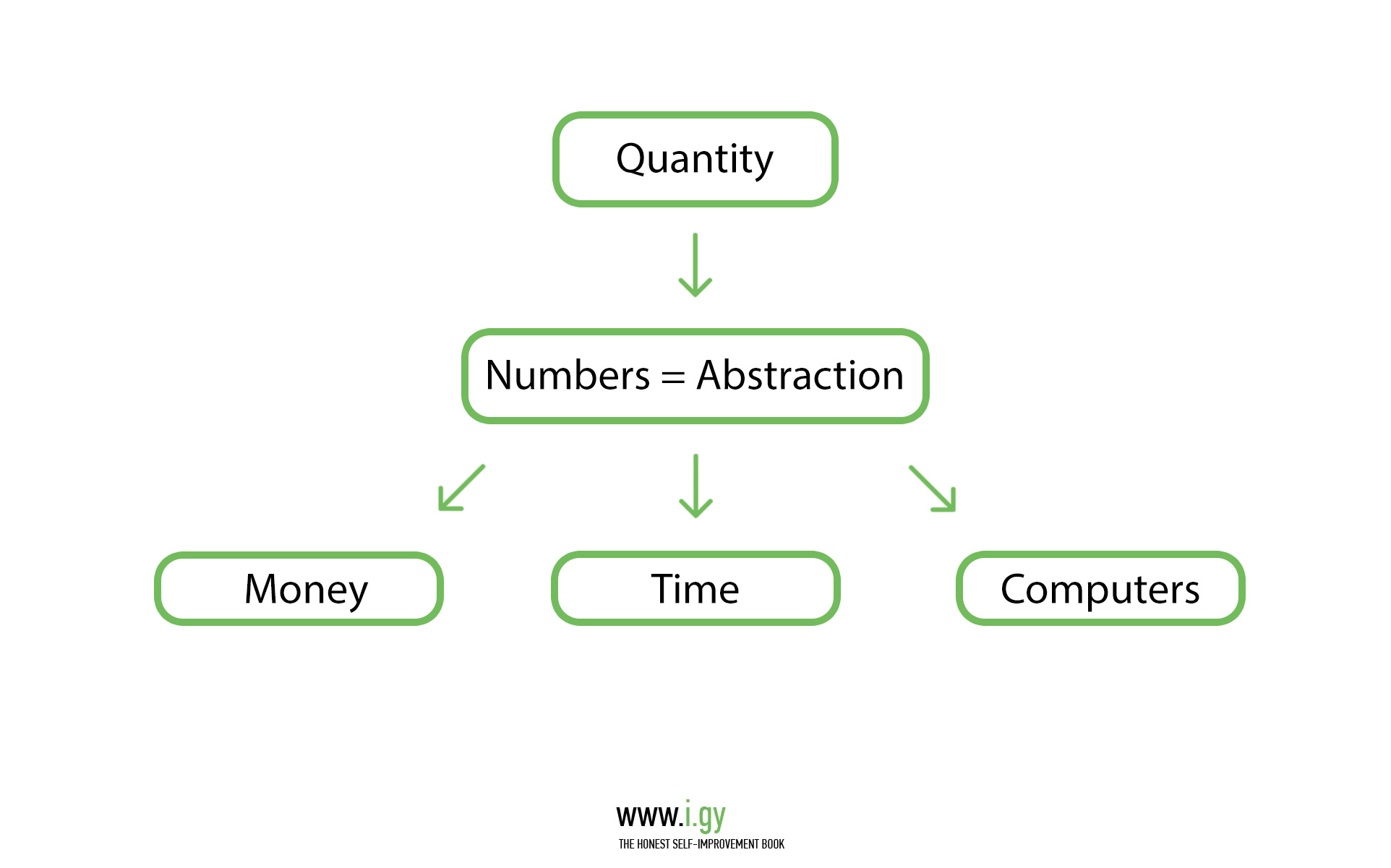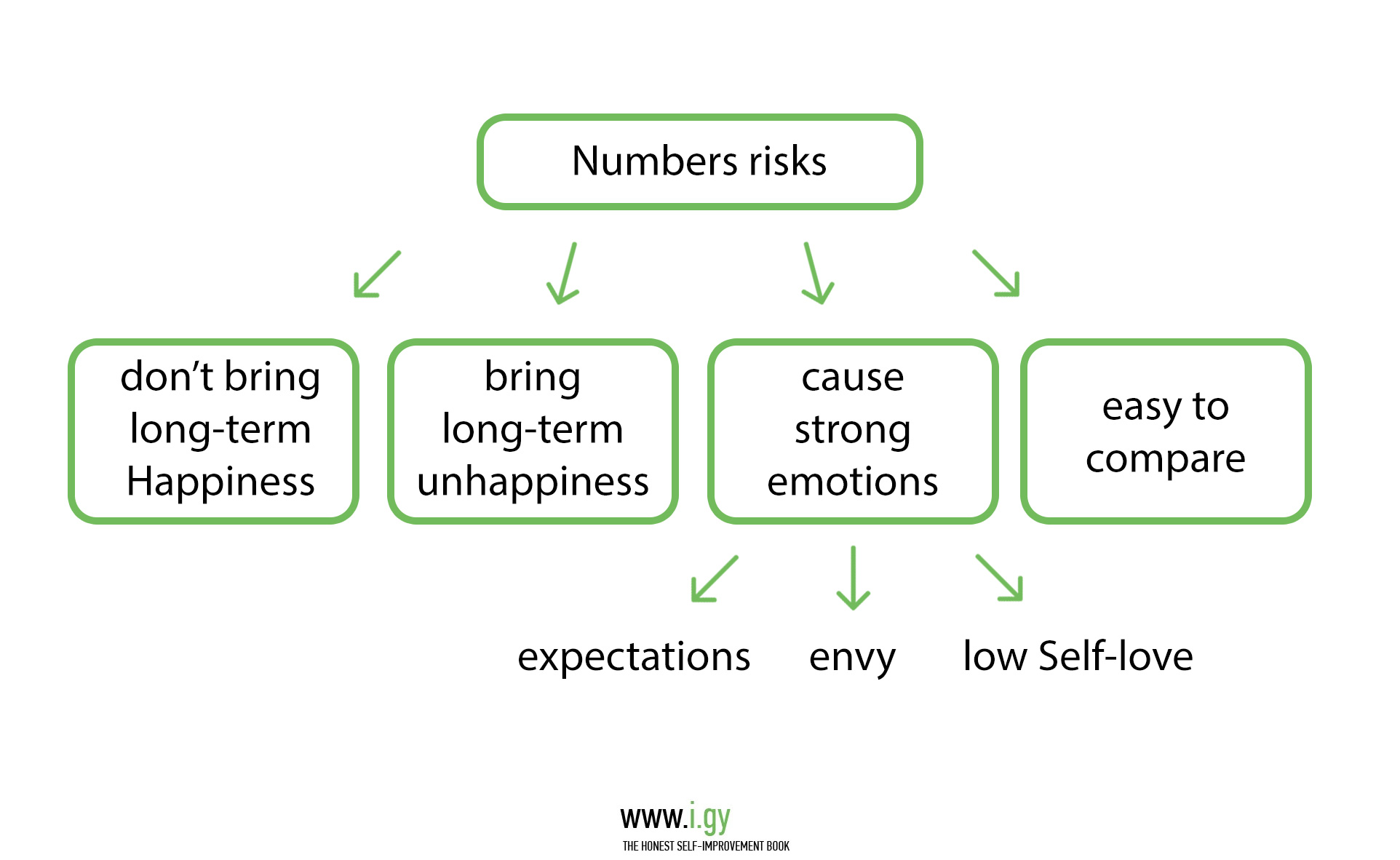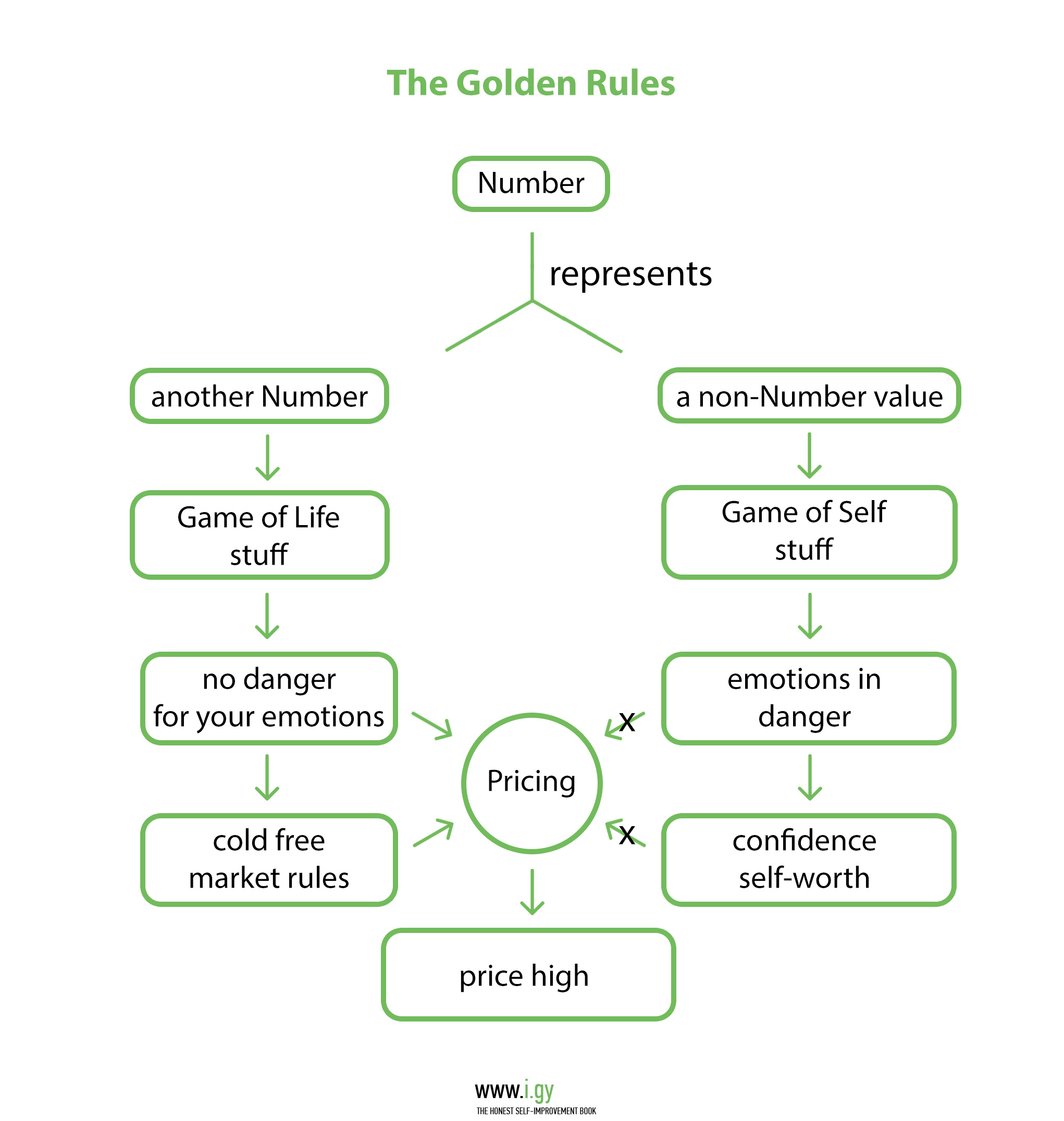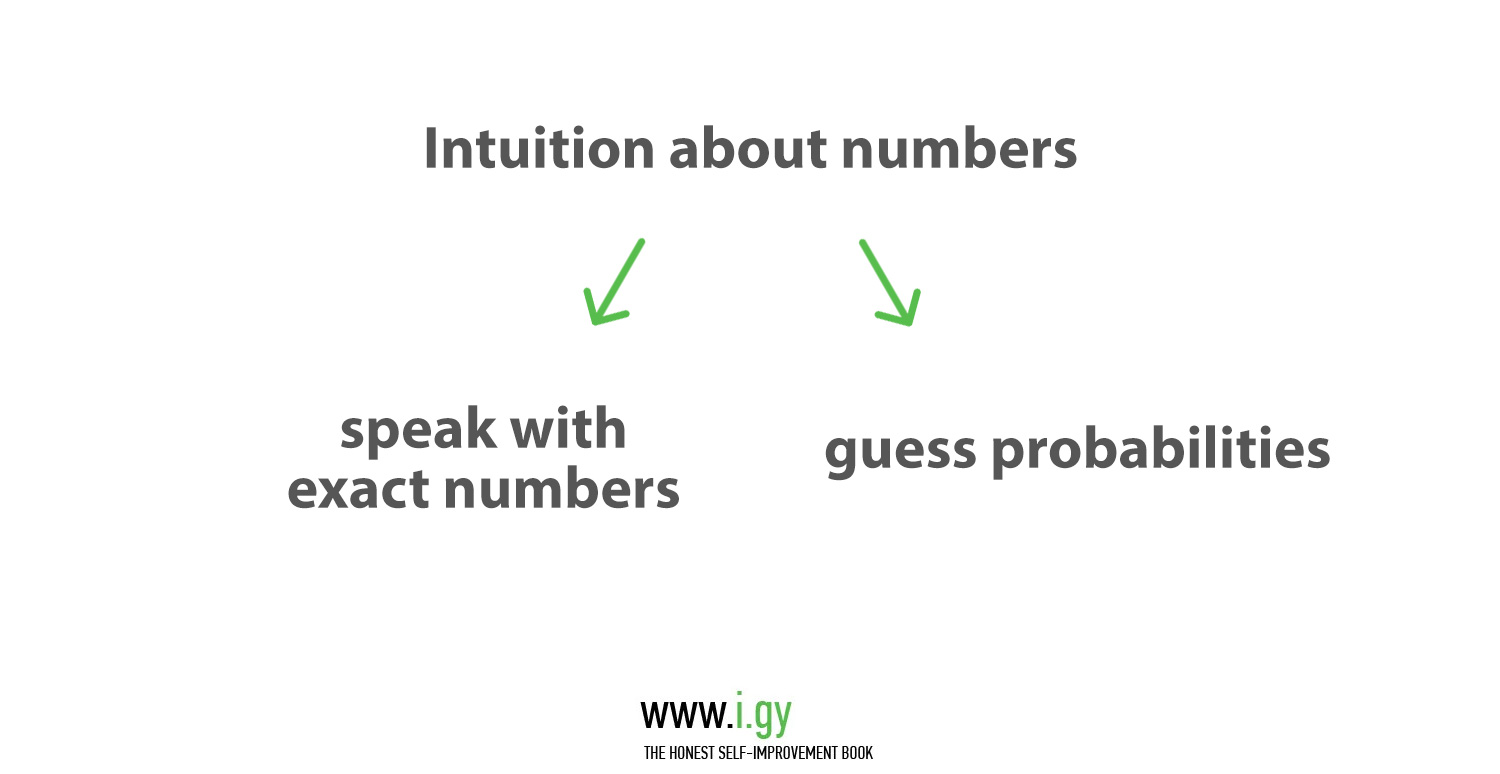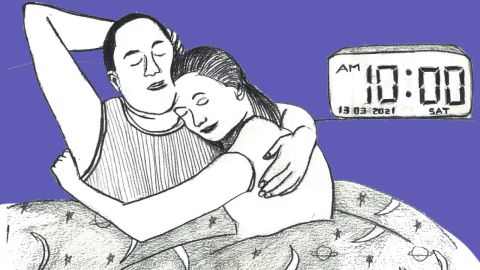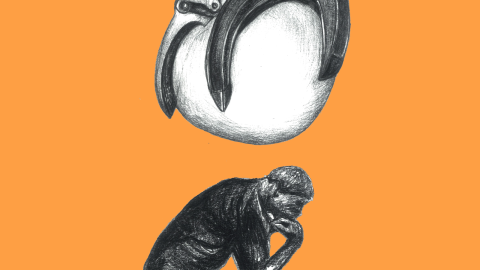Not everything that can be counted counts, and not everything that counts can be counted – Albert Einstein
Human biology has barely evolved in the last 15,000 years. But our world didn’t stay the same. Science and technology gave us the understanding and tools to change everything around us (for better and worse).
We often hear how language (and specifically written language) was the major driving Force of Progress.1 But there is one more concept we didn’t really evolve with, but which still governs the modern world like no other. Numbers.
Money is about numbers. Every operation with money is a number.

Keeping track of time in a modern way is a number. Making sure you get enough sleep is a number.

Our feedback for educational processes (eg, school grades) is largely numerical. Our work targets are often numbers.
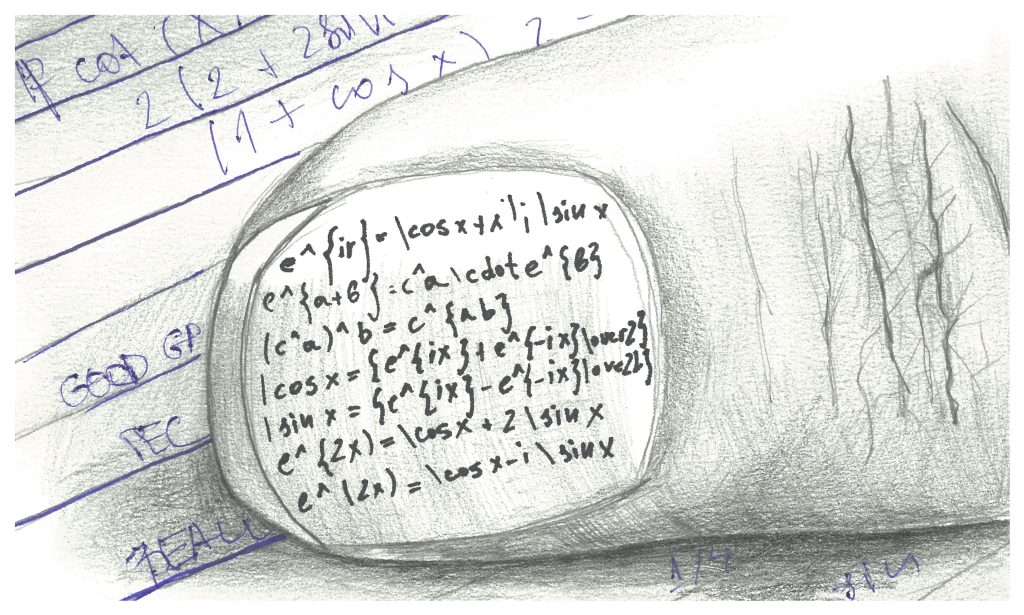
Our social status in life is tied to numbers such as salary, net worth, debt, and number of honors (e. g. 1st at the Olympics).

Our mood is influenced by the number of likes, hearts, shares, and comments on our social media posts, even if we don’t know the people who liked them, and they mean nothing special to us.

We tie our future luck to numbers. 8 is good and 4 is bad in China (it’s a big deal!), but here we love a Four-leaf clover.

Our computers represent everything as numbers. Google, social media, and every digitized process are just based on an algorithm with numbers behind.

Numbers are also everywhere in nature.
Obviously, numbers are of critical importance. But although we learn 15 years of math in School, college, and possibly University, do we really, really understand numbers and how to approach them?
A brief look at the history of numbers helps us answer this question:
– about 40,000 BC – first evidence that our ancestors learned to count
– around 3500 BC – the Middle East, Babylonian civilization introduced the first positional number system. They even used fractions and managed to calculate square roots. Though they had no clear and understandable way of writing them.
– Before the 2nd century AD, Chinese mathematicians introduced negative numbers for loss and debt.
– 7th century AD – Indian mathematician Brahmagupta first uses 0 (zero) as a number for calculations and not only as a place holder.
– around 1000 AD – first evidence of a decimal number system with zero. The Arabs spread and further developed it.
– 1202 AD – Leonardo Fibonacci introduces the Hindu-Arab system in Europe by writing his book “Liber Abaci”
– 18th century Europe – negative numbers are finally accepted by mathematicians. There are clear notation, understanding, and calculation methods for fractions, roots, logarithms, and exponents. Modern mathematical Science was born.
The conclusion is obvious – numbers are quite new for humanity, and, before the industrial revolution and mass education, they were used only by small groups of mathematicians, so we never had the Time and possibilities to develop an Intuition about numbers.
I discovered I don’t have an intuitive understanding of what numbers are when a friend of mine, a genius mathematician and university professor, gave me this simple problem to solve (one he gives to all new students to explain to them what math really is):
You are a shepherd in the Stone Age, and you have a lot of sheep, say hundreds.

Each morning, you let them out from their place, and they spread around to graze in the open. Each evening, you have to make sure they all return and no sheep are lost. But there is a problem. You can’t count, and you’re completely illiterate (you’re in the Stone Age after all). How do you make sure that each evening, no sheep are lost?
I twisted my mind around this problem for more than half an hour. I didn’t think of the solution, although it’s dead simple. You can try your luck too. The solution is right past these cute sheep.
The solution is to take many pebbles (or small sticks or whatever you have available) and form a pile. In the morning, let the sheep out one by one. Each time a sheep leaves, move a pebble from the pile into a second pile. When all the sheep have left, you’ll have an old and a new pile. The number of pebbles in the new pile is your number of sheep. You cannot count the pebbles or the sheep, but you don’t need to. When the sheep return, every time a sheep is back, move a pebble back to pile one. If in the end no pebbles are left in pile two, no sheep are missing.
I was feeling a bit stupid upon hearing the solution. It’s so simple. How could I not think of that?
My genius friend comforted me that university students were usually just as clueless, and whole classes often couldn’t find the answer. He then proceeded to tell me why this problem is what he starts his teaching with:
“I have to teach the students what an abstraction is, as all of mathematics is based on abstraction. It’s simple – the abstract object represents a real object (or another abstract one if useful). The pebble represents a sheep. All of math is built on this principle”.
You don’t need to count. The sheep are numbers, and pebbles are numbers, so you just skip your problem with numbers, and pebbles can represent sheep. Simple but hard to think of. Why?
Because most of us have no intuitive understanding of numbers and abstraction.
I’m sure by now you’re ready to start throwing the metaphorical pebbles at me. First, I tried my very best to make you feel dumb and possibly succeeded. Now I’m claiming you don’t have an understanding of something you spent 10 to 15 years learning, multiple hours a week. I can almost hear your internal voice:
“What about my algebra A-s and the differential equations in university? They were fucking complex!!! I’m good with numbers and abstraction!!!”
You are right, but so am I. What you’re good at are number operations and specific types of abstraction.
Don’t worry, it’s not your fault. Our outdated education system dives deep and teaches us a ton about the main possible operations with numbers and some very deep levels of abstraction. But the goal of the education system is to prepare you to be an academic, not to understand life or be happy. The resulting Intuition is very narrow and can only be used in math and exact science.
But numbers are everywhere. How come no one teaches us how to manage them in life?
Well, it’s just the way it is, as usual, we have to take matters into our own hands. It’s never too late to learn, even from scratch.
But first, you have to admit you may have a problem and look into it. Believe me, 99% of people have it in some form. This was the role of the sheep: to convince you that it’s critical to have an Intuition about what numbers stand for. Good? Good.
Life is full of situations when numbers are all around, but the real challenge is not to count or do mathematical operations with them. It’s to understand the abstraction, to understand what they represent and what the context is. 2
Now, let us write down some rules about numbers and then make sure they are true because we’re about to build on them.
Numbers don’t bring sustainable long-term Happiness.3
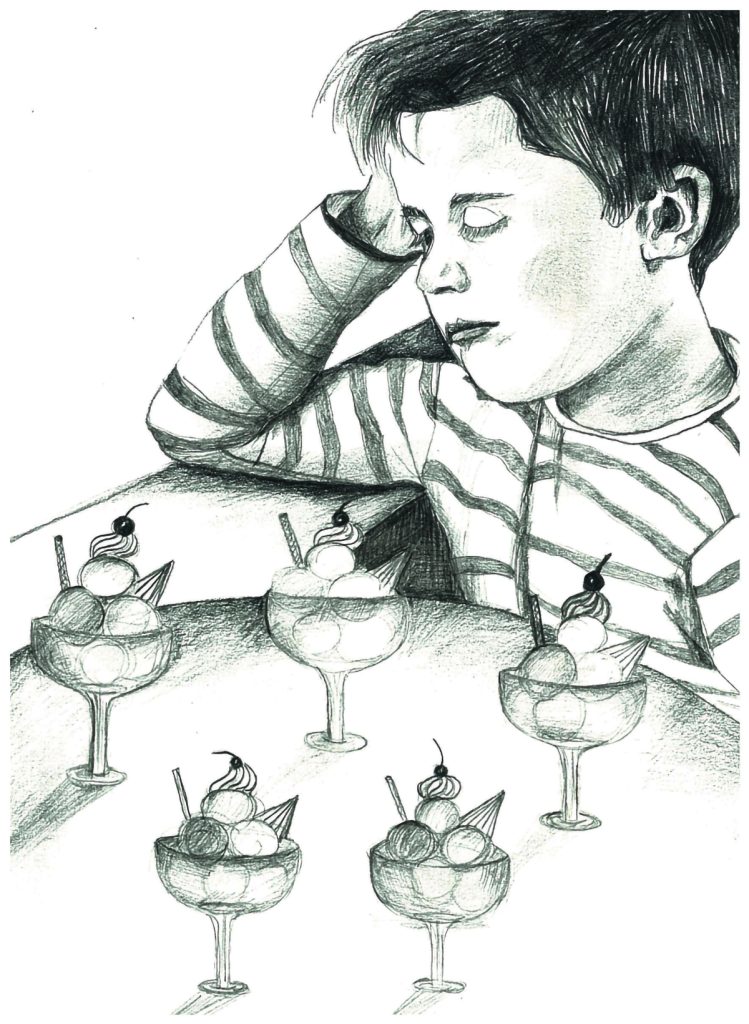
Even if you get rich or win the Olympics, it will only be a temporary direct source of happiness. Because numbers can cause positive emotions, but not sustain them. Humans, especially competitive ones, are preprogrammed to always adapt to what they have and then want more.
Numbers can bring you long-term unhappiness.
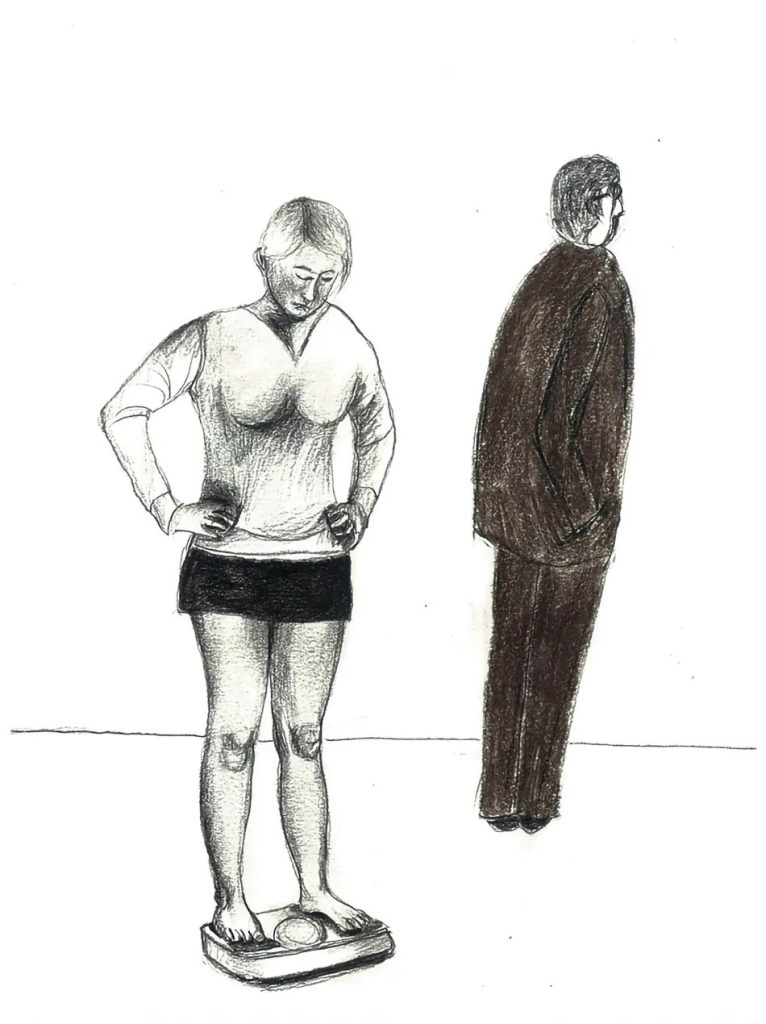
Numbers can cause negative emotions and sustain them. Say you can be unhappy about almost winning the Olympics but not quite, for the rest of your life. Humans are preprogrammed to always want more, including, unfortunately, from the past.
Numbers cause emotions of at least the same strength as similar non-number events.
Say the bonus at work is making you feel appreciated. If only you get it, even more so. If all of your colleagues get a larger bonus, it may make you miserable, not happy. Context. The Game of Self is everywhere, even regarding numbers.
A big danger about numbers is that they are easy to compare and lead to one of the most toxic human emotions, one that can destroy whole societies, envy.
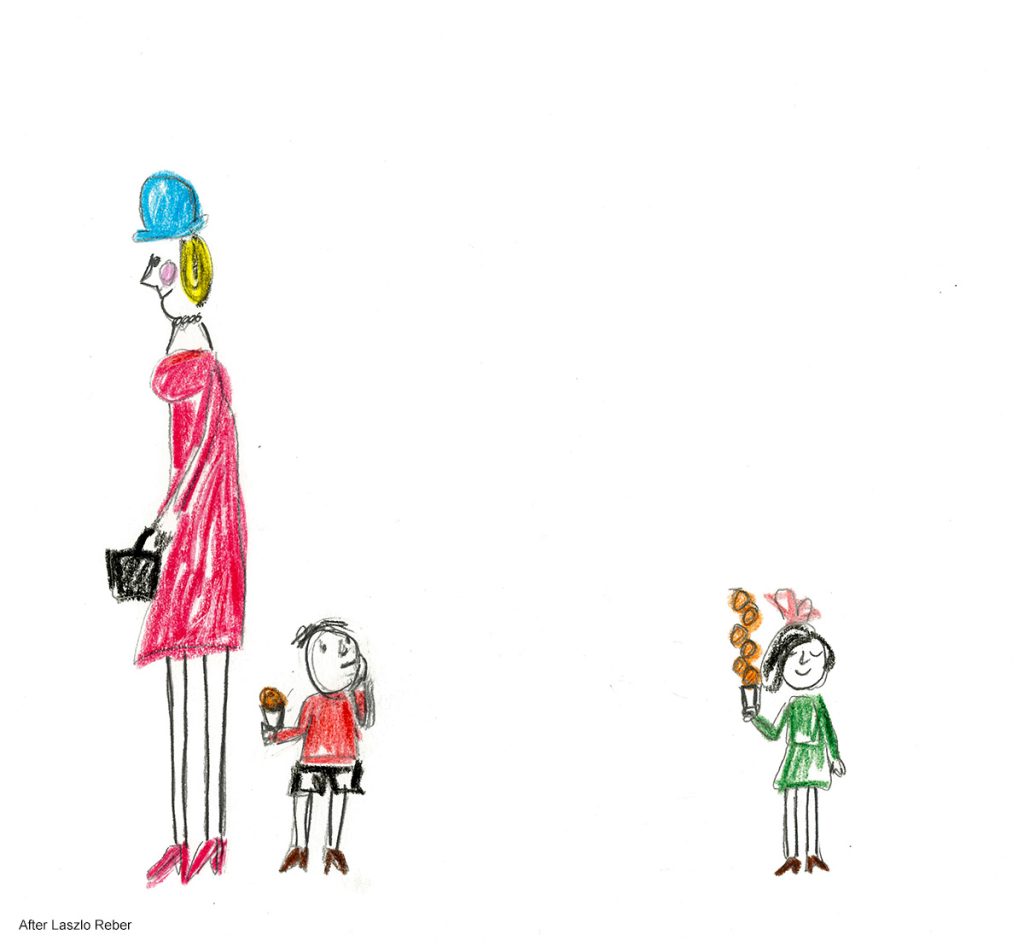
Let’s see if we are correct:
Numbers don’t bring sustainable long-term happiness
This is easy to prove using scientific studies, say about people who won the lottery, celebrities, and sports stars. Given rich people have less to worry about (no Socioeconomic stress), the amount of rich people who manage to fuck up their life regardless is very significant.
Numbers can bring long-term unhappiness – This mostly happens when envy poisons a life, and is often observed in reality. A main source of envy is numbers, especially money and achievements.4
Numbers cause emotions of at least the same strength as similar non-number events. – Obviously, we’re not robots; everything affects us. The effect may be small, but in 99% of people it’s definitely there.5
A big danger about numbers is that they are easy to compare6 – The trigger of any emotion is something very important. For example, jealousy is a strong and toxic emotion, but it needs a trigger. If you’re sleeping cuddled with your partner, you’re not likely to feel jealous at this moment. Envy doesn’t need a trigger; with the amount of numbers around, there is always something to be envious of. If your colleague seems to receive a higher salary for the same work done, the trigger is on constantly, making you potentially miserable. Even if at this very moment you’re supposed to be happily sleeping, cuddled with your partner, envy is ruining your happiness.
To summarize:
Numbers cause emotions, positive and negative, and if you’re susceptible to either envy or low levels of Self-love, the negative effects stick and are really dangerous. The positive ones don’t stick, numbers cannot sustain happiness.
We’re getting somewhere. While in each moment there seems to be a balance, over the long run, numbers seem to be detrimental to our emotional state significantly more than helping it. As a former envious person, I can tell from personal experience that it’s so primal and powerful and destructive, it can ruin massive sources of true happiness like love and friendships. Even if you hide it, even if you act like a saint, thinking like a dick takes all the joy away.
So, now that we have basic principles and know the dangers, we can ask the real questions:
- Numbers are abstractions; can we always know what they can represent for the Game of Life and the Game of Self?
- If we know the number represents a positive Change for the Game of Self, say, much much-needed increase in Self-worth and confidence (and thus causes it in real time), can we use and amplify the effect?
- If we know the number represents a negative Change to the Game of Self, say an unwanted decrease in self-worth and self-love (and thus causes it in real time), can we insulate ourselves from this damage?
- What control do we have over the numbers that pop up around us?
Let’s start with three major cases:
The number represents something obviously bad. Say you forgot to pay a traffic fine, and suddenly you realize that you have to pay the fine + fines for not paying the fine + 2 years of interest, a total of $750.
On a Game of Life level, you’re down $750 + some time to pay the fine + lost focus (every new task reduces focus, which is a separate problem since both your time and focus are limited).
On a Game of Self level, you have two choices: Bash yourself for not paying on time, or simply accept the past you cannot change. The only way to achieve the maximum in this situation (not to lose) is to completely ignore it emotionally. And so you should.

The number represents something obviously good. Say you scored high on your SAT, which is not only good but in your mind all-important; you worked so hard! Is it that important, though? Obviously, you’ll get into a good college in the place of an unknown person. Two lives just changed forever. But are you sure it’s for the better, even ignoring the fate of the other person? Who can possibly know? Is a good college better than learning from the best for free on youtube and going to parties anywhere you want, instead of a campus? And not having to repay student loans and get up too early for a normal human after a party to attend lectures like a zombie? But what if you meet the co-founder of the next google you’re about to create in college? Or the love of your life? The truth is obvious:
No one can fucking know!
And if no one can know, should you be so emotional about an SAT score? The more emotional you are, the more you load up your future with Expectations. And those expectations will lower your happiness when you crash with reality.
It’s great to be excited when you arrive at college, meet new people, and exchange ideas. This is the stuff that really matters. But don’t waste your emotions on an SAT score. It’s just a fucking number.
The same if it was bad – it’s not the end of the world, you lost Direction, but you won Freedom to do anything you want with your life. As good as it is, Harvard is still a system. And systems control and ask for Money, reducing your freedom. Life can offer you better deals than that. It’s just about learning to spot them. Your potential is unlimited either way.
You don’t know if the number is good or bad, and emotions are mixed.
Well, there will be some combination of the two cases, but nothing fundamentally different. Emotions will not help you with the good stuff or the bad stuff. In the long term, emotions about numbers load you with potential only for damage – expectations, lower Self-love, or envy.
So, if emotions about numbers don’t really help in any situation, what is the right approach?
In your heart, you already know.
Avoid number-related emotions, don’t give them space, don’t give them time, don’t give them reasons.
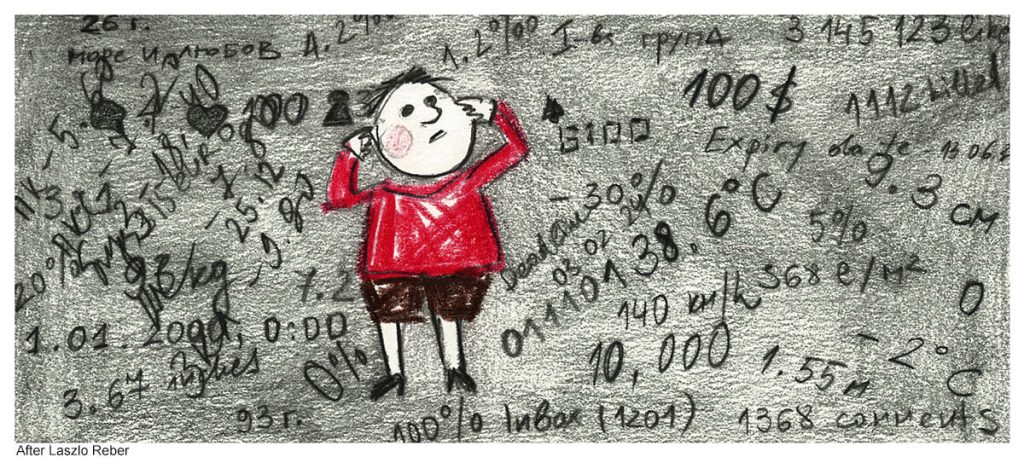
You usually know when you’ll encounter the number that can trigger emotions. Like the ever-smart predicting human you are, this moment is what you can throw the kitchen sink at.
If possible, avoid it completely. For example, I told my assistant to buy my last phone and didn’t ask how much it cost. When she told me anyway, I didn’t really listen (btw I also don’t know the phone model, a friend chose it for me, it’s a Samsung… phone). One useless number less.
I also don’t know my exact share in the company I founded, even though the company’s worth is about 55 million $. I have somewhere around 60% but don’t really know or care how much. Thus, I also don’t know my net worth. I know, this escalated quickly from the phone thing. It’s no different. Two useless numbers less.
Often, it’s not possible not to know. Then you move to plan B: not care!
Remember, focusing solely on numbers does not help in any way. The more you care about numbers, the less fucks will be left to give about the really important stuff in life.
Friends, love, freedom, and creativity are all so much more important than numbers! If you fill your life with all those, you’ll stop caring about numbers naturally. A total win-win!
Ok, so we’re done? Avoid, ignore, basically treat number-related emotions like a dangerous drug?
Almost. We just took the best possible care of your emotions and happiness, but left the Game of Life behind for a while. And leaving reality aside is kind of a problem.
If you ignore numbers emotionally, given you’re driven by emotions, you’ll eventually avoid them completely. Which is fine if you’re a Buddhist monk, but in the modern world, it’s hard to have the all-important freedom if you don’t have any money. And money is numbers.
We have arrived at a paradoxical situation where you don’t want to be emotionally invested in numbers (so you can be happier and also more successful – happiness attracts Success), but on the other hand, you need to understand how money and other Resources work. And understanding requires interest and curiosity, which are forms of love – a strong emotion. So you have to love numbers as a concept, explore them, just not care about… your numbers? This is extremely counterintuitive and is the reason I’m confident that almost every person on the planet gets this delicate balance wrong.
I know this is a very messy concept. I wish it were simpler. But the modern world is a very complicated mess. Often, there are hacks to streamline much of it into a golden rule like “Freedom is good, strive for Long-term Freedom”. But money is a human invention, and the free market and not yet adapted human psychology create a mess of a mess out of it. There will not be a simple rule for this. You’ll have to combine two golden rules:
- If the number represents another number(s), then it’s Game of Life stuff, and you can dive in as your emotions are not in danger. Let’s say you invest in stock, and the current stock price of a company represents many aspects of the market. This is interesting and worthy of your attention and emotions. You want to know how the world works. Truth deserves love by itself. And numbers are part of the Truth. So dig in. For example, trying to guess what value an asset has (a number representing numbers) is a classical task to improve your financial skills.
- If the number represents a non-number value like your performance evaluation or directly your self-worth, then emotions and happiness are in danger. This is the moment to avoid, ignore, not care, and resist the natural temptation to be invested. This is where it’s not worth reacting emotionally. This is where the SAT score and the late fine is. This is where your net worth is. This is where your age is. All numbers you shouldn’t give a damn fuck about.
You can see that while the first is obviously very important, it is boring for most people. But it’s possible to make it interesting, and if you ever want to achieve financial freedom, this is worth fighting for. Don’t you want to know how the world works? I do!
You can see that the second is a direct clash with our natural fear of scarcity (closely related to FOMO) and our inferiority complex (that, according to this study, an astounding 8 out of 10 millennials have). Fear demands that you know what is going on with numbers and be emotionally invested. What if resources are scarce, or we feel inadequate and want to improve in an obsessed, unhealthy, desperate way? It’s not easy to let go,o but it’s worth fighting for. Just remember, those fears are outdated survival instincts that you no longer need. You want to be happy instead.
If you’re an entrepreneur, you’ll quickly find an inflection point between the two – pricing your product or service. On one hand, cold free market rules and long-term profit maximization apply because the price just reflects how the market sees demand and supply (both numbers). On the other hand, the price is a direct psychological projection of your confidence and self-worth.7 I have been struggling with pricing a lot, and pricing too low seems to be an almost universal experience among fresh freelancers and startups. The right way to approach pricing is to follow cold, free market rules, which demand a much higher than expected price for many products and services, especially B2B ones. Never be afraid to price high. Or even crazy high. Or having vastly different prices for different clients. Give it a try, it just might work.
And to make the mess even bigger, there is one case where I hate to say it, numbers should be massively used while we never use them. There is one big category of numbers we missed. Probabilities.
A probability (in %) is the chance of something happening. If you have a baby, the probabilities are 50% boy and 50% girl.
The Game of Life is full of probabilities. Health, love, business, the weather, every complex thing is all made of probabilities. So it’s a very important class of numbers.
Sometimes we cannot influence the probability at all, sometimes we can. If we cannot influence it, sometimes we can prepare, sometimes we can’t.
In most cases, we can either influence it or prepare. In this case, the probability % is important for our understanding of the situation and decisions. So it’s a number worth guessing correctly. And how do we achieve growth in our guessing skills? Practice!
So it makes sense to look at the sky and say stuff like “I think the chances of rain are 73%. Let’s delay the hike“.
And then your friend should be like, “I think they are 42%, I say we take our raincoats and give it a go“.
Why does no one speak like that? Because humans are extraordinarily bad at consciously developing their Intuition about numbers. It may be a cultural thing. Although it’s not just useful, it’s also fun to guess probabilities.
About 10 years ago, I decided that I was done with this and I would try to never say “probably”, “most likely”, “almost certainly”, and similar expressions again. Why not just say “there is a 98% chance” instead of the ambiguous almost certainly?
I started telling my then-girlfriend when we were late for a flight (with me, this is every time), “we have an 80% chance of catching the plane”. She eventually got used to it.
And I started to have some observations. It always seemed like we were very late, but we were still catching all the planes. So my 80% guess was way off and needed to be corrected to maybe 95%. I overestimated the chance of failing 4 times, which is a huge error when dealing with data, a 4x error! I had found a new scientific way to explore my fears (being killed by my girlfriend if we missed a vacation plane was a very legitimate fear) and resulting biases. The experience was always there, I just didn’t put it in words, and it was wasted until I started saying the numbers.
Would any of this self-reflection have happened if I had just said “we’ll probably catch the plane” every time? Not at all. These “probability” terms ignore all the nuances of the situation and just make our brains lazy. Just say it’s 65%, after a green wave, say it’s 70%, after some traffic, say it decreased to 60%. Use numbers when talking about probabilities!
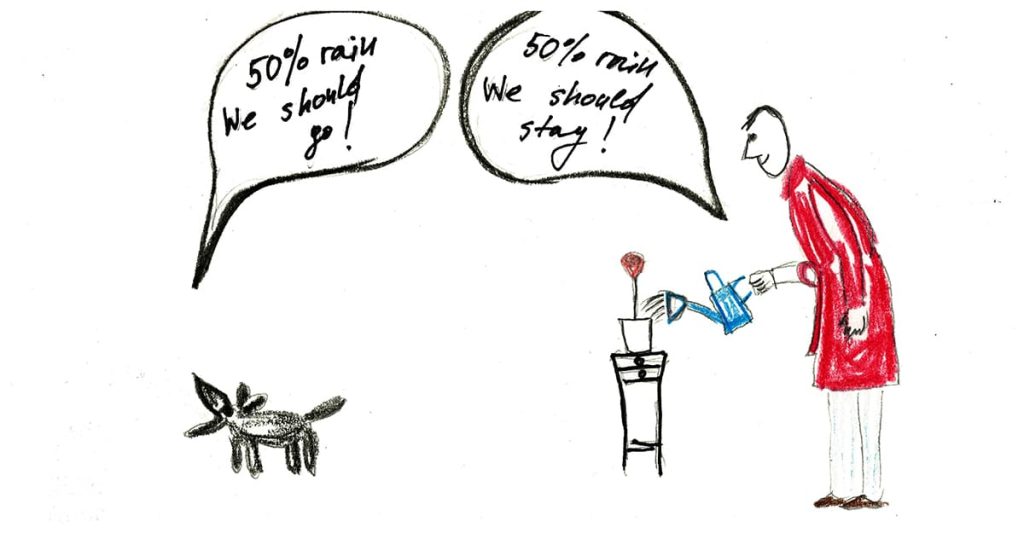
Do this for a year, see when you’re consistently very wrong, adapt your guesses, and your brain will develop a probability Intuition that is extremely useful to counter irrational fears and lizard brain actions.
Similarly, when dealing with numbers representing other numbers, like the revenue or value of a Business, don’t use words like “a lot”, “much”, “many”, “huge”. An elephant is huge because it’s big and beautiful beyond numbers. A business is not huge because it’s beautiful, but because it’s worth a billion and employs 12000 people. If you know it and it’s useful information for your audience, say the goddamn numbers! Your brain will use this data point to develop a tiny bit of Intuition about large companies. Say it’s “huge”, and you give a lazy signal to your brain to turn off for a bit.
A key characteristic of financially successful people and entrepreneurs is they love being specific and hate ambiguous numbers. They like to ask the key number question: How much?
On a side note, in a modern world full of ignorance and manipulation based on ambiguous data, be it advertising/sales or political propaganda, everyone who talks straight facts is instantly respected (at least in the environment you would want to be in).
Game of Life asset valuations and other numbers of the safe kind, such as probabilities, also give you a useful self-growth “sandbox” to improve yourself within. The challenge is to be mindful of the emotions and expectations resulting from numbers. While in hunter mode, you have the power to observe the emotional reactions, rather than succumb to them. This mild variant of exposure therapy should ideally result in the habit of not reacting emotionally to anything numerical.
Numbers by themselves are not important enough to cause fear and anxiety, and shouldn’t.
Eventually, you just get to the “we’ll either miss or not miss the plane, let’s run to the airport, but not stress up in the taxi since we cannot do anything about it right now” mode, and this is the one you want to be in. Jokes about a 70% chance take the pressure off and help that happen.
Give it everything you can; the rest you should let go.
Let’s summarize this beauty of a mess in 3 action-packed lines:
Numbers belong in the mind. Feelings belong in the heart. Don’t mix them.
But also…
Love your freedom. Let the heart help the mind earn the money to make it happen.
And with the right approach…
You have a 96% chance of success.
- Chowdhury, M., Hossain, S. A Study of The Compelling Role of Language in Influencing Culture and Community.// Education, Language, and Culture (EDULEC), Dec 2022.
https://www.researchgate.net/publication/371051312 - Lingefjard, T., Hatami, R. The beauty of abstraction in mathematics.//Policy Futures in Education, 2020.
https://www.researchgate.net/publication/338735035 - Kudrna, L., Kushlev, K. Money Does Not Always Buy Happiness, but Are Richer People Less Happy in Their Daily Lives? It Depends on How You Analyze Income.// Frontiers in Psychology 13, May 2022.
https://www.researchgate.net/publication/361026853 - Ren, M., et al. Do the poor envy others more? The effects of scarcity mindset on envy.// Current Psychology, 2022.
https://www.researchgate.net/publication/364684007 - Sánchez-Hernández, M., et al. Does the Number of Likes Affect Adolescents’ Emotions? The Moderating Role of Social Comparison and Feedback-Seeking on Instagram.// The Journal of Psychology, Dec 2021.
https://www.researchgate.net/publication/357786875 - Wemken, G., et al. The impact of social comparisons of job demands and job control on well-being.// Applied Psychology Health and Well-Being, Jan 2021.
https://www.researchgate.net/publication/348326335 - Putta, S. The Influence Of Entrepreneurial Characteristics On The Financial Performance Of Small And Medium Scale Enterprises.// IJCRT, 2023.
https://www.researchgate.net/publication/370902698
Coming soon 🙂

